Reluctant
Accomplice
____________________

Military portrait of Konrad Jarausch, 1939
Reluctant
Accomplice
A Wehrmacht Soldiers
Letters from the Eastern Front

EDITED BY
Konrad H. Jarausch
With contributions by
Klaus J. Arnold and Eve M. Duffy
Foreword by Richard Kohn
PRINCETON UNIVERSITY PRESS
PRINCETON AND OXFORD
Copyright 2011 by Princeton University Press
Published by Princeton University Press, 41 William Street,
Princeton, New Jersey 08540
In the United Kingdom: Princeton University Press, 6 Oxford Street,
Woodstock, Oxfordshire OX20 1TW
press.princeton.edu
All Rights Reserved
Library of Congress Cataloging-in-Publication Data
Jarausch, Konrad, 19001942.
[Stille Sterben. English]
Reluctant accomplice: a Wehrmacht soldiers letters from the
Eastern Front / edited by Konrad H. Jarausch; with contributions by
Klaus J. Arnold and Eve M. Duffy; foreword by Richard Kohn.
p. cm.
Includes bibliographical references and index.
ISBN 978-0-691-14042-1 (hardcover: alk. paper) 1. Jarausch, Konrad,
19001942Correspondence. 2. SoldiersGermanyCorrespondence.
3. World War, 19391945Personal narratives, German. 4. World War,
19391945Atrocities. 5. World War, 19391945Campaigns
Eastern Front. 6. World War, 19391945Moral and ethical aspects.
7. IntellectualsGermanyCorrespondence. I. Jarausch, Konrad Hugo.
II. Arnold, Klaus Jochen, 1968 III. Duffy, Eve M. IV. Title.
D811.J364 2010
940.54'1343092dc22
[B]
2010021714
British Library Cataloging-in-Publication Data is available
This book has been composed in Goudy
Printed on acid-free paper.
Printed in the United States of America
1 3 5 7 9 10 8 6 4 2

CONTENTS

In Search of a Father: Dealing with the Legacy
of Nazi Complicity
Letters from Poland and Germany, January 1940
to August 1941

PREFACE

The exact role of the military in the Nazi genocide during World War II remains difficult to assess because of the wide variety of combat experiences and occupation actions on the eastern front. During the postwar years the myth of the clean Wehrmacht helped to exonerate former generals and facilitate the Federal Republics rearmament as well as NATO membership. However, the shocking photographs of soldiers committing atrocities, presented by a controversial exhibition of the Hamburg Institut fr Sozialforschung, discredited this apologetic legend, suggesting instead that the entire army might have been involved in war crimes. This charge triggered angry rebuttals by veterans like ex-chancellor Helmut Schmidt that their units were without blame, until Holocaust historians like Omer Bartov assembled evidence that proved the Wehrmachts general complicity in the war of annihilation beyond doubt. But what is still heatedly debated is the exact degree of involvement of different units at the front and in the hinterland in antipartisan reprisals, political executions, and shooting of Jewish civilians.
Inspired by this controversy, I decided to reexamine my fathers letters from the field, since they offer a nuanced picture of what German soldiers thought and did during the war. This resolve turned into a curious voyage of discovery that tested my loyalties as a son and professionalism as a historian. Growing up in a dead fathers shadow in post-war Germany was not easy, because a contentious teenager could not argue with a ghost. When generational rebellion brought me to the United States, we were separated not only by my distaste for his conservative-nationalist politics but also by a vast physical and cultural distance. No doubt, a desire to explain the collaboration of educated Germans with the Nazis was one of the motives behind my becoming a historian who explored topics like the academic illiberalism of students or the perversion of ethics among professionals. But I remained reluctant to carry such investigations into my own family, since it meant painful disclosures of things some members would rather forget. It took until my retirement from the directorship of the Zentrum fr Zeithistorische Forschung in Potsdam to muster the courage to confront this legacy.
This unusual source consists of some 350 letters sent by Konrad Jarausch, a high school teacher and journal editor, from occupied Poland, training grounds in Germany, and POW camps in Russia between September 1939 and his death in January 1942. Although as a member of the reserves he could only report from the perspective of the rear, he was close enough to witness the devastating impact of the breath of war. A first set of letters focuses on the Polish campaign, describing the chaos in the wake of the German advance, the treatment of POWs, and the interactions of the population with the occupation regime. A second section of the correspondence deals with the details of the training of recruits in Poland as well as in Germany, illustrating the process of militarization of civilians in the Wehrmacht. The final and most original group of letters presents a chilling account of the mass death of Russian POWs in the German receiving camps for want of adequate food supply. In between there are close descriptions of army life and ten unpublished essays on the suffering of the conquered East that provide an inside view, close to the perspective of an ordinary soldier.
It seemed important to share these documents with the public, since they are more detailed and analytical than comparable messages from the field. Most collections available in English, like the last letters from Stalingrad, only contain selections from widely different individuals. Other editions like Karl Fuchss show the naive enthusiasm of Nazified youths, while Willy Reeses confession describes the horror of the actual fighting. In contrast, Jarauschs letters document the experience of a single, mature academic over two and one half years and contain more critical reflections on the war. Although they are personal in tone, since most were addressed to his wife, brother, and friends, they are written in a clinical language and present meticulous descriptions. When the military historian Klaus Jochen Arnold attested to their unusual character, we decided to collaborate and prepare an accurate transcription. Along with a personal introduction and an explanation of their significance for military history, we published a selection from this correspondence and some fifty pictures as Das stille Sterben... Feldpostbriefe von Konrad Jarausch aus Polen und Russland, 19391942.
For the German edition we ultimately settled on a form of presentation that would constitute a letter diary of Konrad Jarauschs experiences in Poland, the Reich, and Russia. On the one hand, the frequency of correspondence presented the opportunity of having almost daily progress reports, but on the other it also posed the challenge of considerable repetition and overlap. Instead of aiming for a full-length scholarly edition or a narrative interspersed with only a few snippets of quotations, we chose a selective and annotated presentation that would preserve the integrity of the authors voice and convey the vividness of the descriptions as well as the depth of his reflections. For this reason we reproduced several complete letters at the beginning so as to give a sense of their style, but subsequently eliminated many redundancies and trivial references of interest only to the family. Since we aimed for easy readability, we kept our commentary to a minimum, only explaining the rationale of the edition and providing separate introductions into his personal life as well as military career. German reviewers seem to have found this editorial compromise workable.
Next page

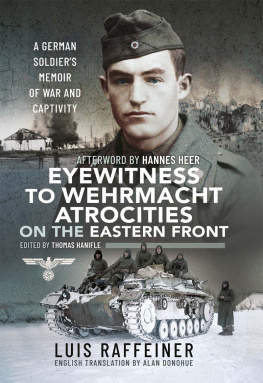
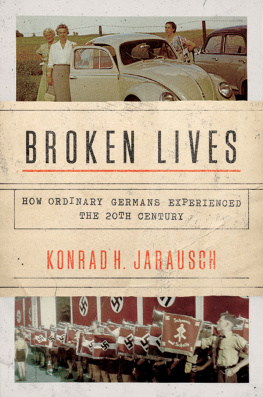
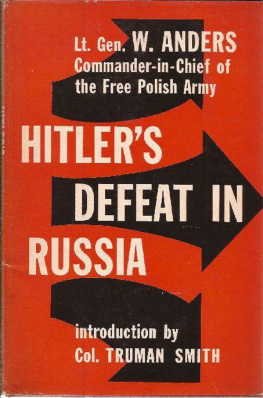

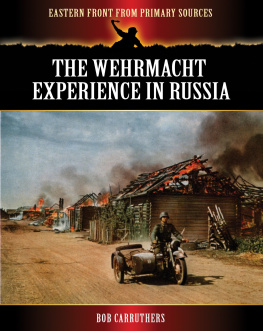
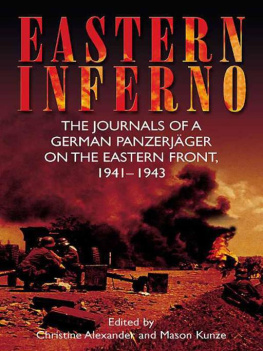
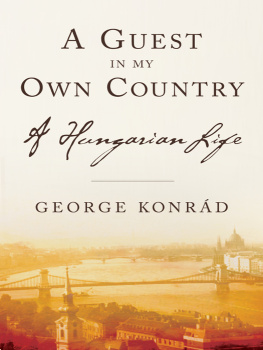
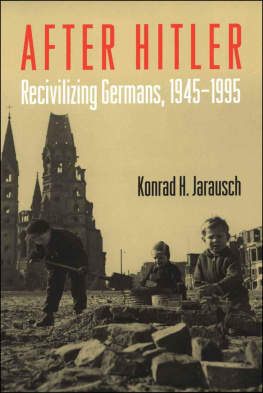
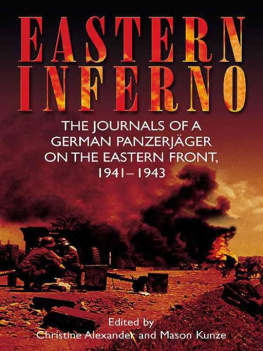


 CONTENTS
CONTENTS 